What's New
Displaying results 2611 - 2620 of 4052
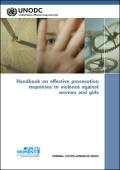
Resource | Publications,
Drawing upon the recommendations and guidance contained in the updated Model Strategies and Practical Measures, the United Nations Office on Drugs and Crime (UNODC) and UN Women, in cooperation with Thailand Institute of Justice, have drafted the Handbook on Effective Prosecution Responses to Violence against Women and Girls with a view to assist prosecutors in their duty to uphold the rule of law, firmly protect human rights and serve their community with impartiality and fairness in cases involving violence against women and girls.
The focus of this Handbook is on violence against women and girls, based on the United Nations definition i.e. "any act of gender-based violence that results in, or is likely to result in, physical, sexual or psychological harm or suffering to women, including threats of such acts, coercion or arbitrary deprivation of liberty, whether in public or private life".
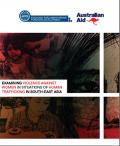
Resource | Publications,
Human trafficking is a form of violence against women (VAW) that occurs within and across borders. It involves many different actors, including families, local brokers, international criminal networks and immigration authorities, and in many cases it leads to a form of modern day slavery for the victim. Human trafficking affects the economy, political stability, law enforcement, women's rights and public health, particularly reproductive health and sexual health. Trafficking victims are also placed at greater risk of contracting HIV/AIDS.
Human trafficking also cuts across many fundamental issues, such as human rights, maintenance of peace and security, national development and family health, and efforts to stop it naturally involve many sectors of society. Parliamentarians, or, members of national parliaments, are one vital element that can play a significant role by virtue of their commitment to legislation. Laws are meritless without government support.
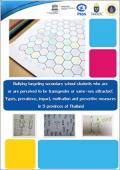
Resource | Publications,
Access to education in a safe environment is a universal human right. However, the exercise of this right is often compromised by the presence of violence and bullying in schools, making them unsafe. Given its often gendered nature, bullying is considered a subtype of school-related gender-based violence.
In particular, students who are lesbian, gay, bisexual or transgender (LGBT) tend to be disproportionately bullied at schools. In many Western and Asian contexts, over half of LGBT students report having been bullied because of their same-sex attraction or because of their transgender expressions. Thailand is often perceived as very accepting of sexual/gender diversity, but in fact LGBT people are usually only tolerated, not accepted. There was previous evidence of school bullying in Thailand, but only anecdotal evidence pointed at the presence of school bullying specifically targeting students who are or are perceived to be LGBT, or on mechanisms to counter it in Thai schools.
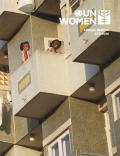
Resource | Publications,
UN Women plays a leading role in supporting improvements in global norms and standards that accelerate the realization of gender equality. We provide expert knowledge and evidence, advocate for critical issues, convene key stakeholders, and engage with UN Member States to build consensus and forge agreements on new commitments.
The Annual Report documents UN Women's work to foster women's empowerment and gender equality around the world. It highlights some of the organization’s initiatives during the year and provides summary financial statements, a list of new programmes and projects, and contact information.
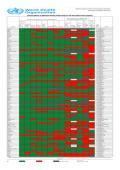
Resource | Data Sheets,
Selected policies on adolescent friendly health services in low and middle income countries - information from countries that responded to the Global Maternal, Newborn, Child and Adolescent Health Policy Indicator Surveys (2009-10, 2011-12 and 2013-14) undertaken by Department of Maternal, Newborn, Child and Adolescent Health (MCA), and Family, Women's and Children's Health (FWC).
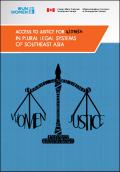
Resource | Publications,
This publication is intended to share an analytical framework for investigating plural legal systems from the gender perspective. It focuses on the broad spectrum of the legal orders, including those that are informal, not formally recognized, or not State sanctioned covering customary, indigenous, traditional and religious orders. UN Women hopes that this publication will be useful for states and non-governmental organizations working at the forefront of cases, making positive impacts on women’s lives with useful working tools; and provide guidance for the regional research and to identify contentious issues within the region.
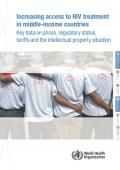
Resource | Publications,
The paper provides information on the prices paid by 20 middle-income countries for adult and paediatric formulations of antiretroviral treatments recommended by WHO. It links this information with an analysis of the intellectual property situation of the selected medicines taking into account existing license agreements as well as compulsory licenses, and includes data and general information on a number of other determinants of prices and availability of ARVs, including tariffs, markups and taxes, as well as the regulatory status.
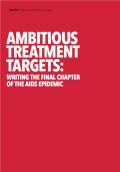
Resource | Reviews and Snapshots,
By 2020, 90% of all people living with HIV will know their HIV status. By 2020, 90% of all people with diagnosed HIV infection will receive sustained antiretroviral therapy. By 2020, 90% of all people receiving antiretroviral therapy will have durable viral suppression. When these targets are achieved, at least 73% of all people living with HIV worldwide will be virally suppressed—a three-fold increase over current estimates of viral suppression. Modelling demonstrates that achieving these targets by 2020 will enable us to end the AIDS epidemic by 2030.
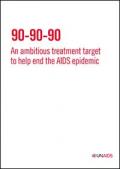
Resource | Publications,
HIV treatment is a unique tool in the AIDS response, preventing illness and death, averting new infections and saving money. As hopes for ending the AIDS epidemic depend in large measure on the world’s ability to provide HIV treatment to all who need it, in a rights-based approach, final targets for universal treatment access are critical.
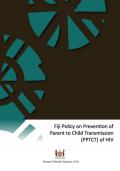
Resource | Laws and Policies,
Prevention of mother to child transmission of HIV has contributed to the reduction in the number of vertical transmission in Fiji. There has been an increasing focus on prevention of parent to child transmission (PPTCT) with the provision of HIV testing to pregnant women attending antenatal clinics (ANCs). Globally and nationally we have seen PPTCT services reduce HIV infections in children.
The need for prevention of transmission of HIV from parents to child is paramount for the Ministry to achieve its targets of zero new hiv infections which prevents transmission of HIV from parent to child, and secondly to reduce maternal deaths secondary to any AIDS related Illness, which contributes to Millenium Development Goal 5 and zero AIDS related deaths goals by UN.





